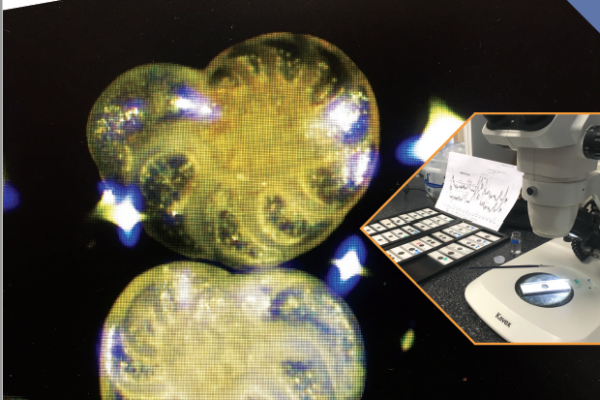Category: News

Annual Review 2023
Read More
Friendly fire: Investigating the effects of cyclic dipeptides produced by our microbiota in the progression of periodontal disease
Humans can have nearly one billion bacteria in their mouths – known as the oral microbiome. These bacteria co-exist in a delicate balance which can determine healthy and disease states. Importantly, the composition of our oral microbiome is associated with a variety of systemic conditions such as diabetes, cancer, dementia, rheumatoid arthritis, and cardiovascular disease.
Periodontal disease (PD) is a chronic inflammatory dental condition that is the leading cause of tooth loss worldwide. There are several different species of bacteria associated with this condition, however, researchers now believe that an imbalance of the oral microbiome itself (dysbiosis) is causing disease.
Cyclic dipeptides are small molecules that have been identified in patient samples and their presence was found to positively correlate with PD severity. Cyclic dipeptides act in bacterial interspecies competition and cooperation and in mediating host-pathogen interactions. Therefore, they could be leading to dysbiosis and PD by promoting or halting the growth of harmful or beneficial bacteria respectively.
By the end of this project we will have determined the role cyclic peptides are playing in PD, and their potential as prebiotic compounds that can be used to halt the growth of bacteria associated with dysbiosis and disease. This new strategy could allow us to sustain a healthy symbiotic oral microbiome, avoiding PD and systemic conditions associated with pathogenic oral bacteria.

Awarded: Carnegie PhD Scholarship
Field: Biology
University: University of St Andrews